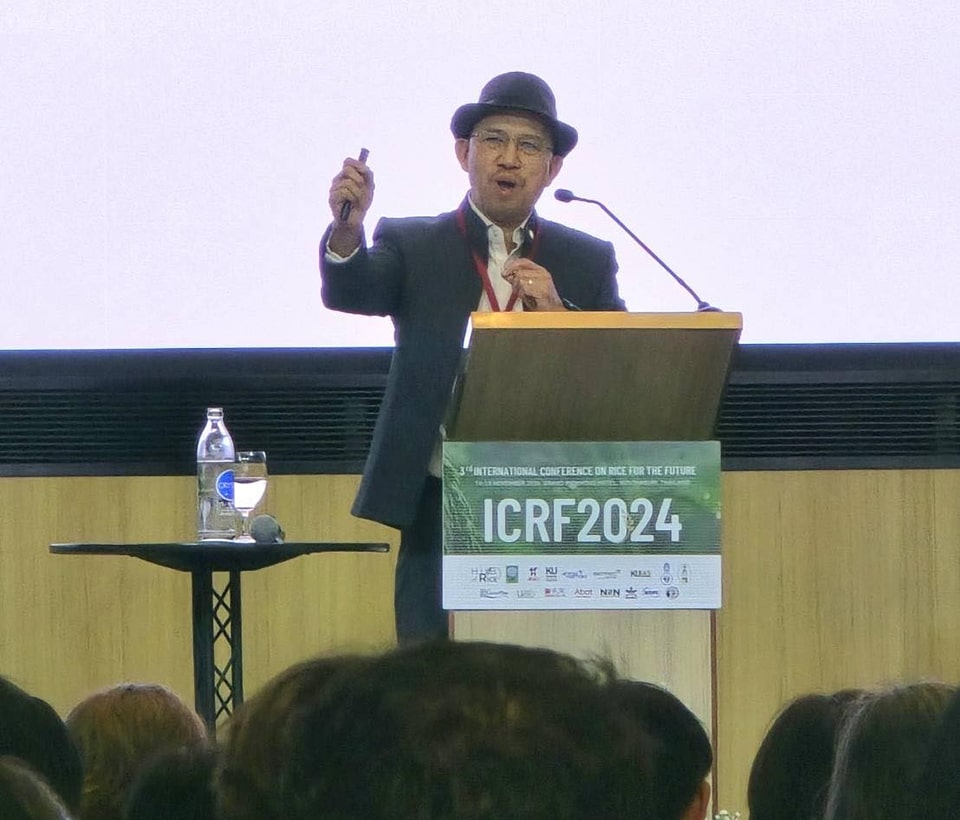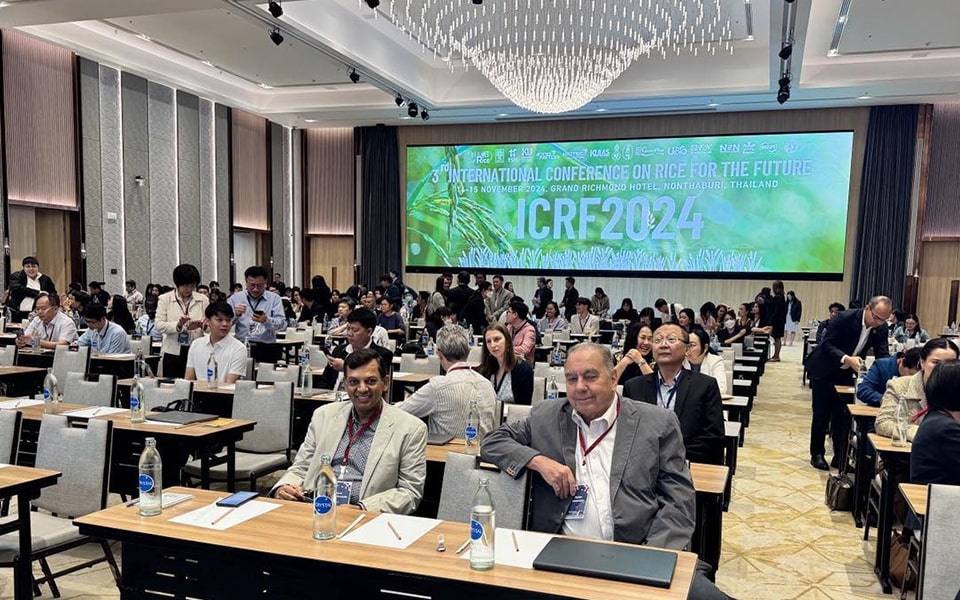NONTHABURI, Thailand—Dr. Glenn Gregorio, Center Director of the Southeast Asian Regional Center for Graduate Study and Research in Agriculture (SEARCA), was one of the speakers during the 3rd International Conference on Rice for the Future (ICRF 2024), organized by the Thailand Rice Science Research Hub of Knowledge, Rice Science Center, Kasetsart University, National Center for Genetic Engineering and Biotechnology (BIOTEC), and National Science and Technology Development Agency (NSTDA). The event took place at the Grand Richmond Stylish Convention Hotel on 14–15 November 2024.
The conference addressed an array of topics, including rice omics and breeding, resistance to biotic and abiotic stresses, the impact of climate change on rice, innovative processing and product development for healthy rice products, health-related initiatives, medical and pharmaceutical applications, and advancements in agri-technology.
 During his presentation, Dr. Gregorio discussed the challenges that salinity presents to plant breeders and introduced technologies and solutions to address these issues.
During his presentation, Dr. Gregorio discussed the challenges that salinity presents to plant breeders and introduced technologies and solutions to address these issues.
He highlighted several SEARCA publications exploring climate change's impacts, particularly saltwater intrusion on Vietnam's Mekong Delta, and the strategies communities have adopted to address these challenges.
He also proposed relevant policy interventions to support the development of rice varieties. These include promoting and supporting research and development toward the expansion and wider adoption of integrated rice farming technologies that ensure high productivity and resilience.
"With these integrated technologies available, solutions for better response to salinization could be realized," Dr. Gregorio shared.
"But what is crucial is wider adoption among farmers and their timely, coordinated implementation in coastal areas," he underscored.
He also emphasized the importance of complementing innovative rice production techniques with tangible financial solutions like credit and insurance. Additionally, he suggested policies on mainstreaming the adverse impacts of unsustainable practices, such as extensive groundwater pumping and agrochemical application and investing in varieties that are flood-, drought-, heat-, and saline-tolerant, along with establishing a breeding program for new varieties while continuing to support traditional rice varieties.

ICRF 2024 brought together over 200 leading rice scientists, researchers, and students. Also among the distinguished speakers was Dr. Reiner Wassmann, climate change expert, former International Rice Research Institute Senior Scientist, and SEARCA Senior Fellow.